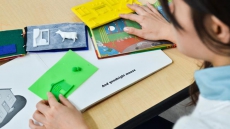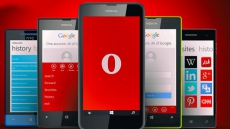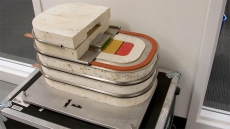Texting while driving with Google Glass is a clear distraction on the road, says a study.
"Texting with either a smartphone or Google Glass will cause distraction and should be avoided while driving," said lead researcher Ben Sawyer from the University of Central Florida.
"Google Glass did help drivers in our study recover more quickly than those texting on a smartphone. We hope that Glass points the way to technology that can help deliver information with minimal risk," he added.
The study is the first scientific look at using Google Glass to text while driving.
"As distractive influences threaten to become more common and numerous in drivers' lives, we find the limited benefits provided by Glass a hopeful sign of technological solutions to come," Sawyer noted.
Sawyer and his team set up the experiment with 40 young participants.
They drove in a car simulator with either Glass or a smartphone and were forced to react to a vehicle coming up ahead by slamming on the simulator's brakes.
Researchers compared text-messaging participants' reactions on each device.
Those using Glass were no better at hitting their brakes in time, but after their close call returned to driving normally more quickly.
"While Glass-using drivers demonstrated some areas of improved performance in recovering from the brake event, the device did not improve their response to the event itself," Sawyer pointed out.
More importantly, messaging with either device negatively impacted driving performance.
While Glass gives drivers the option of using head movements and voice commands to view and respond to text messages, thereby avoiding movements of the thumb, texting with the technology still causes distraction, the authors concluded.





